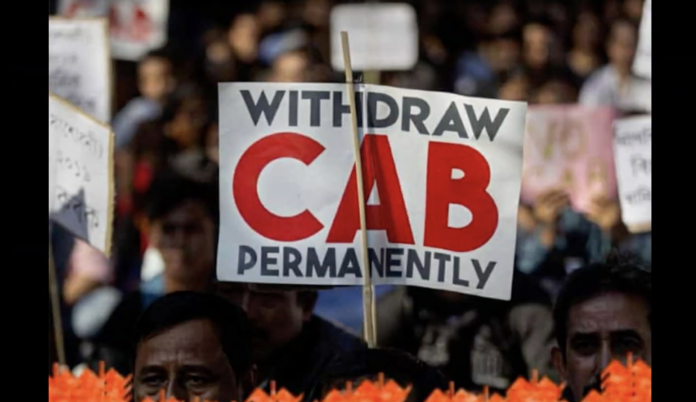Dr Anis Ansari, IAS (Rtd)
The unprecedented wave of nationwide protests against the Citizenship Amendment Act (CAA) and National Register of Citizens (NRC) and the National Population Register (NPR) has shown unthinkable secular unity at a time when the Centre was trying to extend the infamous ‘divide and rule’ policy of the British. The BJP would never have anticipated such huge uproar from all corners of the country when it was getting the Bill passed smoothly in both the Houses. As protest marches and rallies dominate the daily political discourse, it is imperative to understand what role the CAA, NRC and NPR can actually play at a time when the country is strife with rising unemployment, uncontrolled inflation and much more.
Under NRC, each citizen will be required to furnish documents with their birth dates and places to prove their relations with their parents and siblings. The usual identity proofs like Aadhar cards, ration cards, electricity bills, bank passbooks are no more admissible for this purpose.
Under NPR exercise from April to September 2020, all persons living in India will be required to give the details of their residence for the last and future six months along with details of parents and mobile numbers.
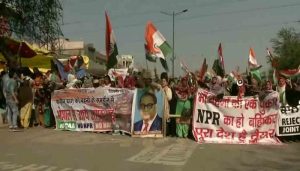
Under CAA, any person belonging to Hindu, Sikh, Buddhist, Jain, Parsi or Christian community from Afghanistan, Bangladesh or Pakistan, who entered into India before 31st December 2014, shall not be treated as illegal immigrant. Such a person who has stayed in India for five years or more will be eligible to become a citizen of India.
Below is a list of assessment of how the CAA, NRC and NPR can work together in the country with a population of 1.37 billion, the second in the world next to China (http://statisticstimes.com/demographics/population-of-india.php).
1. These provisions are unnecessary: The object of this scheme is stated to be able to identify and deport infiltrators. This can be better achieved by more efficient and honest surveillance system. In order to detect a doubtful citizen or an illegal infiltrator, governments do not have to obtain certificates from the entire population that they are not offenders.
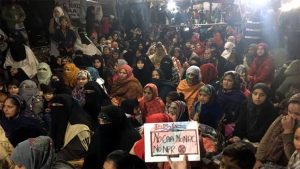
It is estimated that the number of illegal immigrants may range from 1 to 2 crores against the 1.37 billion population of the country. In order to detect a relatively small population of illegal immigrants, it is avoidable to put the entire population of a billion to submit certificates of births of their parents and themselves. Under the existing laws (Indian Citizenship Act, Foreigners Act, Passport Act) also, governments can detect, prosecute and deport illegal immigrants from any country.
2. This exercise will accelerate economic downfall of the country: The country is already bleeding with large scale unemployment, rising prices, stagnant exports and imports, declining investment, recession, falling rupee, agrarian distress and farmer suicides. When an entire country is put under pressure to collect documents to prove their parents’ and their citizenship, huge expenditures are involved for carrying out the task while the country is already hit by a staggering unemployment rate (https://qz.com/india/1401357/indias-high-gdp-growth-is-hiding-an-unemployment-crisis/).
3. This will trigger large scale corruption: When 1.37 billion citizens are made to queue up before government offices to collect certificates, among them are illiterate farmers, socio economically backward groups and landless labourers, officials will surely set up their shops wide open to loot the hapless applicants in order to speed up the process. This will in turn result in forced mobility arising out of calamities, situations and compulsions to migrate from cities to cities in search of livelihood, education, documentation and so on. Doubtful citizens will have to run around the Foreigners’ Tribunals for appeal for decades.
4. CAA is highly discriminatory: At its core, the Act violates Fundamental Rights of Equality under Articles 14, 15, 16, 19, 21 and 25 of the Indian Constitution. CAA excludes Muslim refugees from Pakistan, Bangladesh and Afghanistan by design. Also are excluded Tamil Brahmins from Sri Lanka, Madhesis from Nepal, Ahmadis from Pakistan, Muslims and Buddhists from China (Tibet) and Rohingyas from Myanmar.
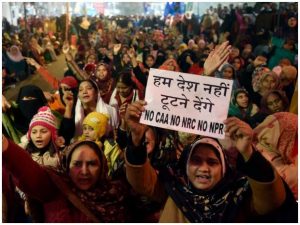
5. Highly expensive exercise: It is estimated that a national NRC would cost from Rs 50,000 Crore to Rs 75,000 Crore. It will take decades to finally settle the issue. Putting undocumented doubtful citizens of around 47 crores in detention camps will cost lakhs of crores of rupees, resulting in debilitate economy. Detention camps are anyway known for inhumane living conditions, skyrocketing India into the worst cases scenario of human rights violation.
If numbers are analyzed, about 30 crore Indians are landless, 15 crore are nomadic tribes and about 2 crores are homeless (India defines ‘homeless’ as those who do not live in Census houses, but rather stay on pavements, roadsides, railway platforms, staircases, temples, streets, in pipes, or other open spaces), according to Census 2011. Most of these 47 crore Indians belong to Scheduled Tribes, Scheduled Castes and Other Backward Classes including Pasmandah Muslims and women. Most of this populace tends to vote against the BJP and it does not need second thoughts for one to understand that the CAA-NRC-NPR dispensation has been designed by RSS-BJP to deprive these poor and semi-literate groups of citizens of their basic rights of citizenship.
All the political parties which obtain votes from such groups will be marginalized and the Opposition will be weakened, rendering the democracy a hollow frame with no vigour.
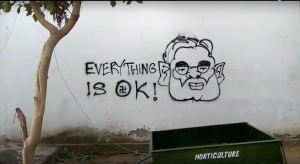
The scheme is skillfully designed to hurt the marginalized and poor – Muslims, Dalits, Adivasis – who are already bearing the brunt of demonetization.
Under the CAA, government can grant citizenship to non-Muslim immigrants merely on the basis of affidavits that they migrated from Pakistan, Bangladesh and Afghanistan before 31st December 2014. Excluded Muslims can be barred from having all the civic opportunities rendering them third class citizens. That the possibility is real, can be deduced by the action of the government of India in suspending the rules made under Foreigner Act 1946, Passport Act and Citizenship Act in 2015 whereby no action can be taken against non-Muslim immigrants from Pakistan, Bangladesh and Afghanistan for their investigation, prosecution, detention or deportation even if they entered India illegally. Ironically, while Hindu illegal immigrants from Pakistan, Bangladesh and Afghanistan can be granted citizenship without any document, Indian Hindus and Muslims will be treated as doubtful citizens due to lack of documents. Keeping in mind the worst case scenarios, one can easily gauge the intensity of this absurd ruling. It cannot be denied that is a possibility that immigrants with Hindu identities may be sent to India by Pakistan, Bangladesh and Afghanistan as agents to work against the security interests of India.
While the Centre should concentrate on building measures for employment drives, education, food security and shelters of the 21.9 per cent Indian living below the national poverty line (https://www.adb.org/countries/india/poverty), the BJP is focused on implementing CAA-NRC-NPR. It, therefore, becomes essential that us, as responsible Indians to resort to legal measures in persuading the government to withdraw or modify CAA-NRC-NPR. The onus also lies on the Supreme Court as the largest judicial authority in the country strike down the CAA NRC-NPR as arbitrary, discriminatory and unconstitutional.
(Dr Anis Ansari is founder-Vice Chancellor Khwaja Moinuddin Chishti Urdu, Arabi-Farsi University, Lucknow)


